Delivering Secure, Flexible and Scalable Hosted Solutions
Cloud services provide a more cost effective and flexible option than traditional on-premises hosting and are particularly beneficial for small businesses.
Our cloud computing package ensures your data and applications are hosted on our secure servers, which you access over the internet, from a PC or laptop.
You simply pay a monthly fee for all of your IT services, support and maintenance.
We can also supply cloud based phone systems which offer considerably more cost effective and flexible communications solutions.
What is Cloud Computing
There are many different definitions of cloud computing. Put simply, it is a model of computing which means all of your software and resources, such as email, Microsoft Office, access to your business files, are web based. If your resources and software are still on the premises you may have costly maintenance and technical requirements to deal with, and this method gives limited accessibility. By using cloud services you can access everything you need wherever and whenever you want.
What we offer
All you need is a PC or laptop and access to the internet (and of course we can help with all of those things too) and our cloud computing package will cover the rest. As with all of our support, the package will be tailored to your business requirements but it is likely to include:
Secure storage to hold all your company’s documents and data, which will be easily accessible by authorised users.
Online Software such as Microsoft Office including Word, Excel and PowerPoint, and Microsoft Outlook, so you can use these systems even if you don’t have the software loaded on your PC.
All-inclusive support whether you need onsite support or telephone assistance to help with your requests, our all day, everyday IT support is included.
Cloud based phone systems these are becoming increasingly popular with SMEs as a low cost way to keep their comms technology up to date without the need for expensive hardware or continual upgrades.
Why Our Clients Use Key Insite Cloud Services

Cost savings – as you are effectively renting these services, it can be much more cost-effective, particularly for smaller businesses.
Flexibility – add and remove software and the number of users, whenever you like. It helps with flexible working as you can work as if in the office, but from anywhere you have access to the internet.
Scalability – we can adapt and respond quickly to meet new demands to keep up with your changing business requirements.
Crisis Management – systems stay live if hardware fails and communication can be diverted to mobile phones in the case of power outages.
Futureproofing – as your business and staff change or grow you have the tools in place to adapt quickly without significant investment when you need to move forward.
FAQ's
Q : What Is Cloud Computing?
A: Cloud computing involves the delivery of resources such as storage, compute, network, software or applications from a centralized location. These services are delivered either over an organization’s internal dedicated network or the internet.
Q: Are there different types of Cloud?
A: Yes, there are broadly 4 types of cloud – Public, Private, Hybrid, Multi.
Q: What is the Public Cloud
A: Public Cloud -In this model, a third party Cloud Service Provider (CSP) provides resources such as storage, compute or network etc. to a large number of enterprises. The public cloud is based on the principle of shared or pooled resources.
Q: What is a Private Cloud
A: Private Cloud is a proprietary data centre which delivers the above resources. Key Insite operate Key Cloud, our own private cloud system hosted on our own servers. We can also set up a private cloud on your own company servers or offer colocation.
Q: What is A Hybrid Cloud
A: A hybrid cloud is a combination of onsite and third party data centres. In hybrid cloud, workloads are systematically allocated to both clouds based on certain considerations that revolve around cost, efficiency and regulatory compliance.
Q: What does Multi Cloud mean?
A: This is a combination of both public and private cloud or the integration of multiple public cloud providers. This cloud model is difficult to integrate and manage, but also pays handsome dividends.
Q: What are the Benefits of Cloud Computing?
A: No need to procure and maintain onsite data centres
A: Cloud services are compatible with multiple devices and operating systems
A: You can enjoy instant scalability, thus improving organizational agility
A: Cloud environments are generally more secure as compared to onsite ones
A: Enterprise data is centralized, making it easy to secure it and maintain backups
A: Accelerate the on-boarding time of employees, especially remote workers
Q: Is the Cloud secure?
A: Public Cloud Service Providers (CSP) adopt a multi layered approach to security. Measures such as firewalls, intrusion detection and prevention, encryption, user authentication, malware and ransomware protection fortify the security of cloud.
Q: How Can I Develop a Cloud Strategy?
A: You will have to answer a fundamental question. Will I be adopting a cloud solution from scratch or migrating my existing workloads over to the cloud. How does the cloud align with the strategic goals of your enterprise is another important aspect of a cloud strategy.
Q: How do I prepare my company for the Cloud?
A: Key Insite can help you develop a clear cloud strategy with quantifiable goals. Do you have the inhouse and onsite resources to undertake and manage the new cloud service? Key Insite can manage everything and/or help you train your existing IT and other staff.
Q: Which Workloads Can I Shift to the Cloud?
A: In theory, any workload can be shifted over the cloud infrastructure. However, you will have to consider the impact of a cloud migration with special consideration to meeting all regulatory compliances where applicable.
Q: How much do Cloud Services cost?
A: You have to factor in all the costs associated with a cloud service. You also need to compare these costs with other cloud providers and an onsite model. Every feature or functionality you add to your cloud service may also entail additional costs. Public cloud providers deliver more cost savings, but offer lesser control and flexibility. You should also consider whether you have the resources and relevant staff available to initiate and manage a cloud deployment or migration to the cloud.
Q: Do I Need to Train My Own IT Staff?
A: Your existing IT staff will have to be familiar with the newly adopted cloud environment. The areas which need special attention include configuration, integration and understanding of the “shared responsibility model”. Key Insite can manage staff cloud training for you.

